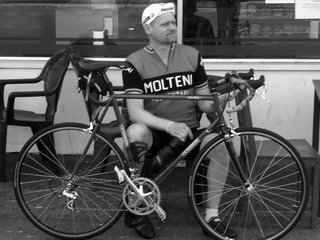On 12 June 2009, I formally resigned from a tenure-track position at Cascadia Community College, my college. A member of the fourth cohort of faculty at this new college, I find leaving it much like leaving home. In my six years at the College I rethought teaching college English and labored over reinventing the structures of the kind of college education that Mark Taylor (New York Times) or Thomas Toch (Atlantic) and various other voices have been calling for of late. As I began to clean out my office, I wondered about my decision to leave that place and the community that has put down roots there. I am, after all, college teacher by vocation and intuition as well as by training. If I could not ply my trade and grow at Cascadia, I likely am unable to pursue my profession anywhere.
Yet, leave I have. In the fall, I will start at the University of Wisconsin’s Department of Educational Leadership and Policy Analysis, a new place where I will develop differently. My guess is that the ELPA community has a very different interest in college teaching than my Cascadia community. The students and faculty there study educational leadership and policy; they are not engaged in guiding novices into higher education and making space for them. While, like my Cascadia community, they must generate feedback about performances for learners, they likely perceive learners and learning quite differently. Performance at Cascadia means documenting interactions in a half-dozen new and distinct discourses in search of growth in one’s ability to think, learn, communicate, and interact (Cascadia’s college-wide learning outcomes). Performance in the research-1 world seems to be more focused on contributions by already fluent members to specialist discourse communities. Cascadia aims at the cultivation of reflective practitioners; the UW, at credentials.
At one level, this change in professional trajectory makes little sense. Many teachers, especially those interested in general education, move away from R-1 settings where the focus is status and research rather than collective learning. At another level, though, the professional trajectory of a teacher has to wend through settings where the development of new knowledge is central. The demands of community college teacher’s life, at least on my interpretation of those demands, left me disconnected from the new knowledge being generated in my field and largely unable to affect the evolution of ideas or practices or institutions within that field. After teaching for 20 years, I am finally dissatisfied with the way a classroom teacher has been constructed, and I aim to push back a bit at that structure.
This change has been invigorating but also deeply sad. Sitting in my inbox this morning was a note from a former student who had encountered a Tobias Wolff short story on iTunes and flashed back to an experimental entry-level literature course that he and I shared. Corey was a student who had learned to learn and, in that class, learned to turn away from grades and toward art. He thought I might appreciate the piece and sent along a link. I will, for the next few years, not meet students like Corey in the context of a class I have designed and facilitate. I hope, in a few years, to understand more completely how that class worked for Corey and whether it is possible to ground a functional college curriculum not in grades and status but instead in craft and performance. Unsurprisingly, it is a student who, at just the right moment, helps me see what I am about.
This new gig cannot work without ongoing collaboration with learners who see themselves as learners. Cascadia provided those collaborations. Here is to discovering new provocateurs (not really collaborators, as I think about it) at the University of Wisconsin.
Tuesday, July 14, 2009
Subscribe to:
Post Comments (Atom)

No comments:
Post a Comment